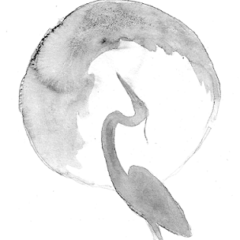Creative and Delicious Meals for the Holidays
It is no surprise that foods that nurture our bodies also promote a healthy environment. Eating organic foods and fresh locally grown produce provide higher levels of nutrients, and avoids exposure to toxic pesticides, harmful hormones, and antibiotics. By making organic choices, you can prevent toxic exposure of farmworkers and contamination of our streams and lakes, avoid cruel treatment of factory-farmed animals, support family farms and rural communities, and decrease unnecessary use of fuel. With some basic knowledge and skill, you can make a great difference for your health and the planet:
You can lower your pesticide exposure by 90 percent by avoiding the top twelve most contaminated fruits and vegetables and eating the least contaminated instead. Eating the 12 most contaminated fruits and vegetables will expose a person to nearly 20 pesticides per day, on average. Eating the 12 least contaminated will expose a person to a fraction over 2 pesticides per day. Go to http://www.foodnews.org/ to learn more and download a wallet sized guide to the dirty dozen and the safest produce.
Go to http://www.savenature.org/ and click on “Eating to Save the Earth” at the top of the screen for more information and resources about healthy and environmentally friendly food choices and information about the book “Eating to Save the Earth.”
Choose fish that are the least contaminated with mercury and PCBs, avoid those farm-raised fish whose production most harms the environment and native fish stocks, and avoid seafood in that is threatened by overfishing, which has driven many fisheries to commercial extinction. The wallet-sized Seafood Selector can provide you with this information when you shop or dine out. In addition to the buying guide, this site has information about fish oil supplements, and best recipes from award winning chef. Visit The Oceans Alive website at http://www.oceansalive.org/
Use meats and eggs that come from animals that were treated humanely, and that have not been treated with hormones, and antibiotics. Watch the Meatrix on the web, a funny and informative short animated movie about factory farming at http://www.themeatrix.com/. The Meatrix is instructive about animal welfare, antibiotic resistant bacteria, pollution and destroyed communities; the Seattle Post Intelligencer states that the “Meatrix achieves something we didn’t think possible – a pretty funny exposé on the evils of factory farming.”
The Physicians Committee for Responsible Medicine (PCRM) is a nonprofit organization that promotes preventive medicine, conducts clinical research, and encourages higher standards for ethics and effectiveness in research. PCRM provides useful dietary information regarding starting a vegetarian diet Vegetarian Starter Kit, vegan diets, and information of diet and specific diseases, (for example Diet and Alzheimer’s Disease) and nutrition reports such as reviews of food available at major airports.
Several sites provide excellent and up to date general nutritional information:
NutritionData (ND) provides nutrition facts, calorie counts, and nutrient data for all foods and recipes at http://www.nutritiondata.com/. “ND tells you, in simple terms, what’s good and bad about the foods you eat, and helps you select foods that best meet your dietary needs.”
The George Mateljan Foundation for the World’s Healthiest Foods was established to “discover, develop and share scientifically proven information about the benefits of healthy eating, and to provide the personalized support individuals need to make eating The World’s Healthiest Foods enjoyable, easy, quick and affordable.” Their website http://whfoods.org/ succeeds in providing a wealth of information about nutrition, food composition and preparation.

